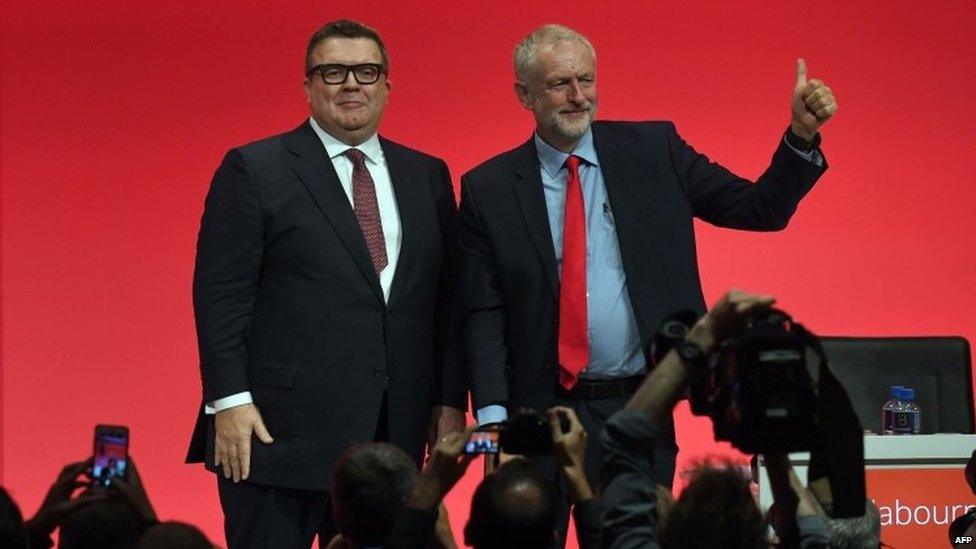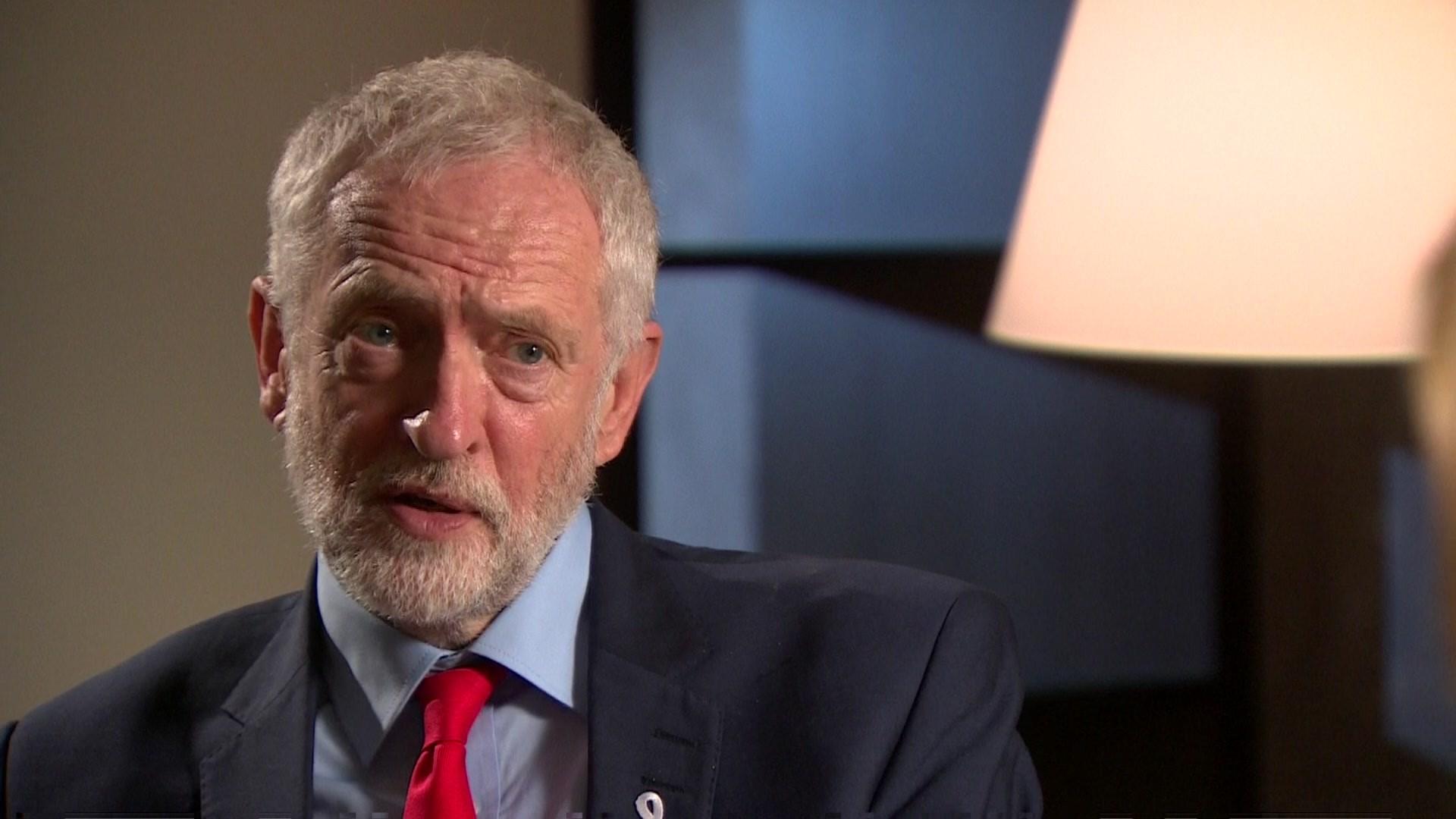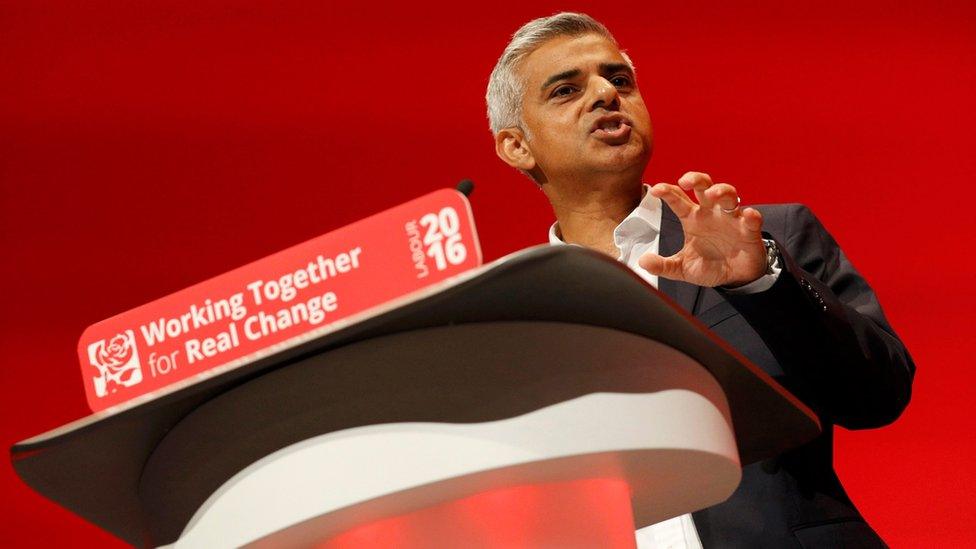Labour conference: Shadow cabinet deal 'on the cards'
- Published

Jeremy Corbyn and Tom Watson have to fill up to 60 vacancies on Labour's frontbench
A deal paving the way for elections to Labour's shadow cabinet could be done well before the party's proposed review in November, the BBC has been told.
The agreement, which is being brokered by the party's chief whip Rosie Winterton, would involve MPs being permitted to elect only a proportion of shadow cabinet places.
Progress had been made and "this will be sorted", one shadow minister said.
Reinstating elections has been a key demand of MPs who quit this summer.
Labour has also said a "not insignificant number" of MPs will return to the shadow cabinet next week - in advance of any formal agreement on elections - among them some "surprising names".
Some members of the NEC and the current shadow cabinet believe that Mr Corbyn cannot return to parliament in a couple of weeks time with continuing vacancies on his frontbench.
At the very start of this week's conference in Liverpool, speaker after speaker at a Labour First rally - filled to the gunnels by those who hadn't voted for Jeremy Corbyn - called for shadow cabinet elections as a way of bringing about unity between the pro and anti-Corbyn factions.
Under the radar
While on the surface no progress appeared to have been made since then at the conference or on the party's NEC, under the radar a parallel process was taking place involving the chief whip and members of Mr Corbyn's staff.
Whether the deal would be enough to bring back high-profile Corbyn critics remains to be seen. But there is some confidence that a deal is on the cards that could see some of those roughly 60 front bench positions begin to fill up.
Labour's deputy leader Tom Watson had made the case for MPs to have some say over who sits at the party's top table at a meeting of the ruling NEC last Tuesday.
No agreement was reached but Watson pressed Corbyn to agree to the demand at Saturday's night NEC meeting in Liverpool as a sign that he was willing to compromise but also to settle the issue swiftly so it didn't hang over the conference.
Instead, and despite the talk of unity, Jeremy Corbyn backed a demand to remove voting rights from NEC representatives appointed by the party's leaders in Scotland and Wales - neither of whom backed his re-election. The attempt failed.
So why are shadow cabinet elections so controversial?
Balance of power
Well, the shadow cabinet appoints three members of Labour's ruling NEC. The fear in the Corbyn camp is that if MPs elect the shadow cabinet they will also choose the three NEC representatives, all of whom wouldn't necessarily back the leader.
The NEC is particularly important because - as recent failed court challenges to its authority prove - it is regarded as the body which will decide on the rules of any future leadership contest.
One Corbyn critic confided: "I don't give a stuff about sitting in the shadow cabinet - I do care about the NEC places."
Despite the likely deal, some of the more contentious consequences of shadow cabinet elections still won't be hammered out until there is a wider review of party democracy and the BBC understands this is unlikely to happen until November,
So - as part of a wider review - if MPs were given at least some say in choosing the top team there could be counter-balancing changes to the NEC's membership which favour Mr Corbyn.
And there may be proposals to give the increasingly left-wing party membership some say in the shadow cabinet too.
Members of Mr Corbyn's inner circle say the delay in deciding the issue of elections owes more to the leader's character than to any Machiavellian manoeuvring by his allies.
They have explained he wants to talk to leading critics and former frontbenchers one-to-one and see how they can work together and this goes beyond just filling front bench posts.
But we have spoken to some of those approached by Mr Corbyn and members of his office and almost all of them saw some form of shadow cabinet elections as essential before committing to a return.
- Published27 September 2016

- Published27 September 2016
